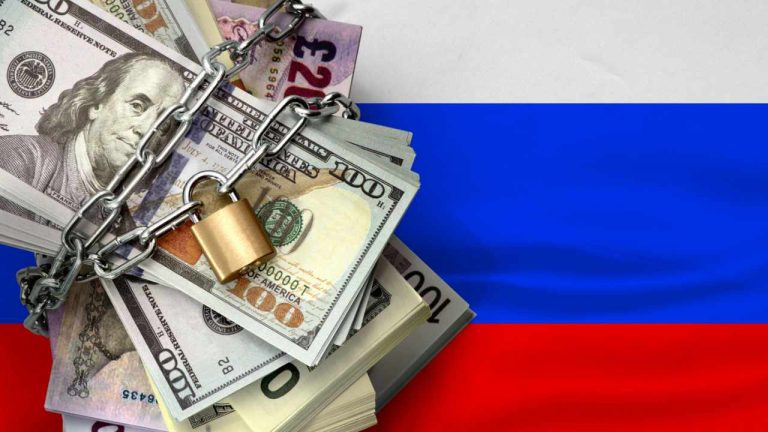
Russia is discussing using national currencies in trade settlements with 10 Southeast Asian countries, members of the Association of Southeast Asian Nations (ASEAN), Russian Foreign Minister Sergey Lavrov has revealed. The move comes as more and more countries worldwide are seeking to de-dollarize.
Russia and 10 Southeast Asian Nations Explore National Currency Usage in Trade
Russian Foreign Minister Sergey Lavrov revealed his country’s efforts to settle trade with 10 Southeast Asian countries in national currencies in an interview with Indonesian national newspaper Kompas. The interview was published in English on Wednesday, with the aid of Microsoft Azure Open AI and Google Translation AI. ASEAN members comprise Brunei, Cambodia, Indonesia, Laos, Malaysia, Myanmar, Philippines, Singapore, Thailand, and Vietnam.
Lavrov explained that Russia does not see the current international situation as a “new cold war.” He emphasized that the country is focused on the development of a multipolar world order, noting that the West, led by the U.S., is actively trying to slow down and reverse this process. “Their goal is not to strengthen global security and engage in mutual development, but only to maintain their hegemony in world affairs and further carry out neo-colonial agendas. In short, nothing has changed, as usual, they solve their problems at the expense of others,” he opined.
“Western egocentrism that disregards the interests of Global South and East countries actually contributes to the search for alternative cooperation formats in all fields. Due to the confiscation of Russia’s foreign reserves in the U.S. and Europe, there is a growing understanding in the global community that no one is immune from the confiscation of tangible assets stored in Western jurisdiction,” Lavrov detailed, adding:
Not only limited to Russia, several other countries are consistently reducing their dependence on the U.S. dollar, starting to switch to the use of alternative payment and calculation systems through national currencies.
“At the same time, the effectiveness of interstate association, in which Western countries do not participate, is increasing,” the top Russian official described, giving the BRICS and the Shanghai Cooperation Organization (SCO) as examples. The BRICS countries comprise Brazil, Russia, India, China, and South Africa.
The Russian diplomat emphasized Russia’s “constructive cooperation in the UN and other multilateral platforms on various urgent international issues,” adding that Russia is working closely with Indonesia this year as the chair of ASEAN.
Lavrov said that he plans to attend an upcoming ASEAN ministerial-level meeting in Jakarta. “We are giving special attention to the development of a strategic partnership with the association,” he stressed. “We have a history of relationships for more than three decades.”
The Russian official detailed that Russia is focusing its efforts on reinforcing the architecture established around ASEAN to foster stability and cooperation within the Asia-Pacific region, elaborating:
The practical cooperation interests between Russia and ASEAN countries, including Indonesia, will be answered with the launch of consultations on the use of national currencies in mutual settlements.
The 10 ASEAN member states have also intensified their own de-dollarization efforts. In May, they agreed to “encourage the use of local currencies for economic and financial transactions among ASEAN member states.” Indonesia’s central bank governor said in April that his country is following the BRICS’ de-dollarization lead to shift away from the U.S. dollar. The country recently introduced a new national payment system to further its de-dollarization efforts and protect against “possible geopolitical consequences.”
What do you think about Russia settling trade with 10 Southeast Asian nations in national currencies? Let us know in the comments section below.
from Bitcoin News https://ift.tt/nXZKI40
https://ift.tt/MCpLfgJ

0 Comments